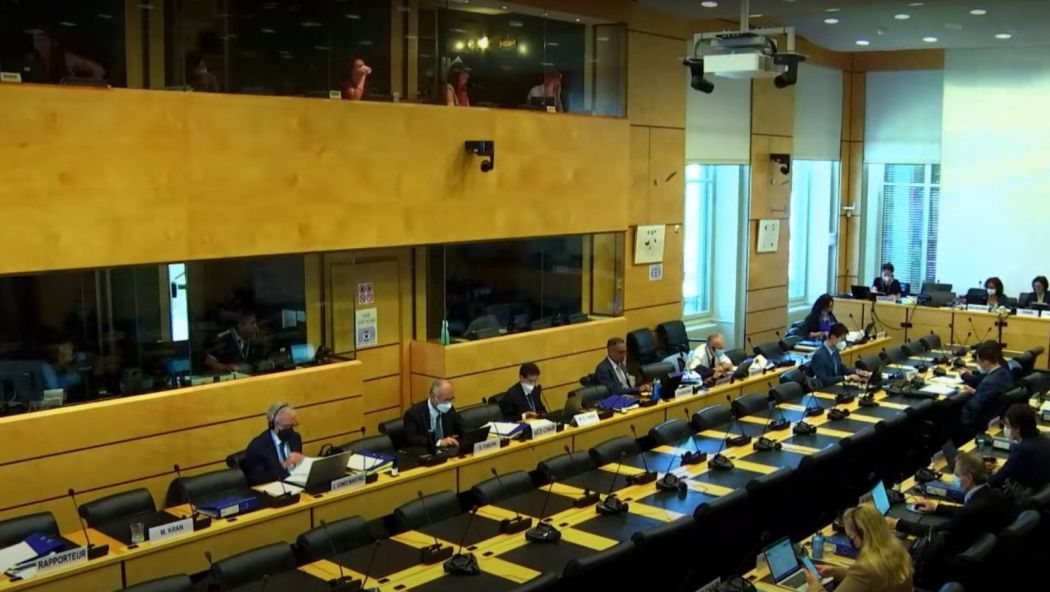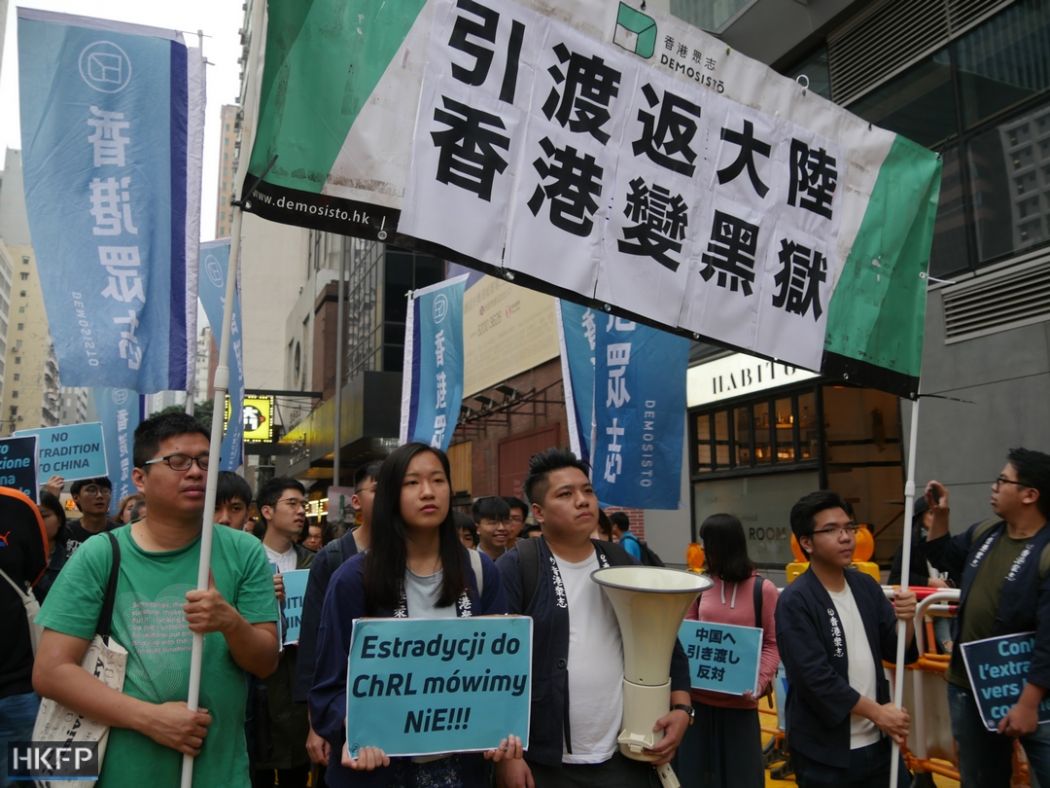Hong Kong has rebuffed repeated questions from UN experts over whether organisations that raised issues for discussion at a review of human rights in the city could face legal consequences. A top official said potential security law breaches would depend on the “facts and circumstances.”

Dozens of civil society groups, including some that have since disbanded or relocated under political pressure, made submissions to the UN ahead of the UN Human Rights Committee review that began last Thursday.
During all three days of the public hearing, experts on the committee asked the nine-member Hong Kong delegation whether the groups may be subject to any punishment for their involvement.
But the meeting concluded on Tuesday without a clear answer.

Carlos Gomez Martinez, one of the panel experts who raised the question, asked in a follow-up on Tuesday whether UN human rights bodies were “considered foreign political organisations” and whether the organisations that took part would be “criminalised under the guise of colluding with foreign forces under the national security law.”
In response, Deputy Secretary for Security Apollonia Liu said: “That would actually depend on the facts and circumstances, as well as the activities, of each organisation, and it is impossible for me to generalise here.”
Gomez Martinez said after that the reply was “insufficient,” but the Hong Kong delegation did not elaborate.
When confronted with a similar question last Friday from Christopher Arif Bulkan, vice-chair of the committee, Liu said that Hong Kong is “an international city having close contact and communication with other countries, regions and relevant international organisations.”
She added that “normal interactions and activities” are protected under the law, and that “what the national security law seeks to prevent [is]… actually very distinct from normal interactions.”
‘Repression of the civil society’
The UN Human Rights Committee is tasked with monitoring UN state parties’ commitments to the International Covenant on Civil and Political Rights (ICCPR).
According to the UN, state parties must report on the progress made towards adopting measures relating to the covenant every four years, after which a meeting is convened.

Civil society groups submitted reports to the human rights committee in two batches. A total of 22 submissions were made in May and June, the majority of which were from organisations based abroad. NGOs Human Rights Watch, Freedom House and Hongkongers in Britain were among the groups.
Three submissions were made by pro-establishment Hong Kong-based groups, namely Lawyers HK, the Hong Kong and Mainland Legal Profession Association and the Asian Academy of International Law.
Separately, organisations also presented reports two years ago – before the national security law came into force – including NGOs the Society for Community Organisation, Hong Kong Unison and Justice Centre Hong Kong. Pro-democracy Civic Party and the pro-government Hong Kong Higher Education Convergence, also participated, while 12 LGBT advocacy groups collaborated on a joint submission.
Some of the groups – among them pro-democracy organisation Demosisto and the Hong Kong Confederation of Trade Unions – have since disbanded.

The New York-based Human Rights in China, which submitted reports both this year and two months ago, said that vague answers and evasion of questions were “consistent with the observation that the uncertainty of the national security law enables the government’s repression of the civil society and any dissenting voice at will.”
HKFP has reached out to some of the participating groups for comment.
Press freedom restricted, protests banned
The series of meetings covered a broad swathe of rights issues in Hong Kong, including the treatment of asylum seekers and domestic workers in the city. Particular attention was given, however, to political developments following the passing of the national security law in 2020.
UN experts grilled the Hong Kong delegates on areas including the arrests of the now-defunct Apple Daily and Stand News staff; the state of press and academic freedom; banned books at libraries; and the use of Covid-19 rules to ban protests.
Secretary for Constitutional and Mainland Affairs Erick Tsang, who led the delegation, defended the developments.

“In fact, democracy has taken a quantum leap forward since the return to the motherland in 1997,” Tsang said in response to questions about the electoral overhaul, which reduced democratic representation in the Legislative Council and ensured only “patriots” can run for office.
The Hong Kong delegates and the rights committee will meet for a closing session on July 22, during which the committee will make recommendations for the city’s consideration.
Editor’s note 20.30: Clarifications were added to show that NGOs the Society for Community Organisation, Hong Kong Unison and Justice Centre submitted their reports two years ago before the onset of the national security law.
Support HKFP | Policies & Ethics | Error/typo? | Contact Us | Newsletter | Transparency & Annual Report | Apps
Help safeguard press freedom & keep HKFP free for all readers by supporting our team

LATEST FROM HKFP
HKFP has an impartial stance, transparent funding, and balanced coverage guided by an Ethics Code and Corrections Policy.
Support press freedom & help us surpass 1,000 monthly Patrons: 100% independent, governed by an ethics code & not-for-profit.
Support HKFP | Policies & Ethics | Error/typo? | Contact Us | Newsletter | Transparency & Annual Report | Apps
Help safeguard press freedom & keep HKFP free for all readers by supporting our team

LATEST FROM HKFP
HKFP has an impartial stance, transparent funding, and balanced coverage guided by an Ethics Code and Corrections Policy.
Support press freedom & help us surpass 1,000 monthly Patrons: 100% independent, governed by an ethics code & not-for-profit.















